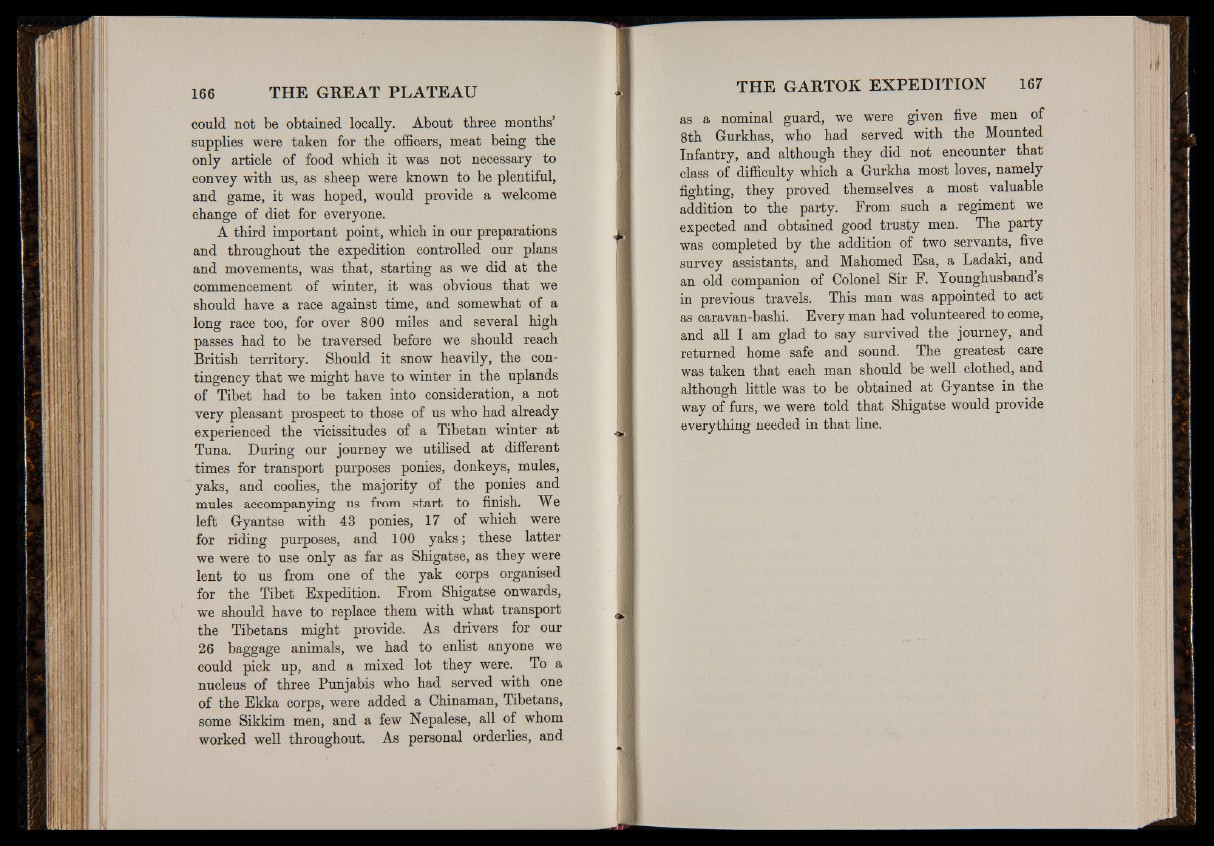
could not be obtained locally. About three months’
supplies were taken for the officers, meat being the
only article of food which it was not necessary to
convey with us, as sheep were known to be plentiful,
and game, it was hoped, would provide a welcome
change of diet for everyone.
A third important point, which in our preparations
and throughout the expedition controlled our plans
and movements, was that, starting as we did at the
commencement of winter, it was obvious that we
should have a race against time, and somewhat of a
long race too, for over 800 miles and several high
passes had to be traversed before we should reach
British territory. Should it snow heavily, the contingency
that we might have to winter in the uplands
of Tibet had to be taken into consideration, a not
very pleasant prospect to those of us who had already
experienced the vicissitudes of a Tibetan winter at
Tuna. During our journey we utilised at different
times for transport purposes ponies, donkeys, mules,
yaks, and coolies, the majority of the ponies and
mules accompanying us from start to finish. We
left Gyantse with 43 ponies, 17 of which were
for riding purposes, and 100 yaks; these latter
we were to use only as far as Shigatse, as they were
lent to us from one of the yak corps organised
for the Tibet Expedition. From Shigatse onwards,
we should have to replace them with what transport
the Tibetans might provide. As drivers for our
26 baggage animals, we had to enlist anyone we
could pick up, and a mixed lot they were. To a
nucleus of three Punjabis who had served with one
of the Ekka corps, were added a Chinaman, Tibetans,
some Sikkim men, and a few Nepalese, all of whom
worked well throughout. As personal orderlies, and
as a nominal guard, we were given five men of
8th Gurkhas, who had served with the Mounted
Infantry, and although they did not encounter that
class of difficulty which a Gurkha most loves, namely
fighting, they proved themselves a most valuable
addition to the party. From such a regiment we
expected and obtained good trusty men. The party
was completed by the addition of two servants, five
survey assistants, and Mahomed Esa, a Ladaki, and
an old companion of Colonel Sir F. Younghusband s
in previous travels. This man was appointed to act
as caravan-bashi. Every man had volunteered to come,
and all I am glad to say survived the journey, and
returned home safe and sound. The greatest care
was taken that each man should be well clothed, and
although little was to be obtained at Gyantse in the
way of furs, we were told that Shigatse would provide
everything needed in that line.